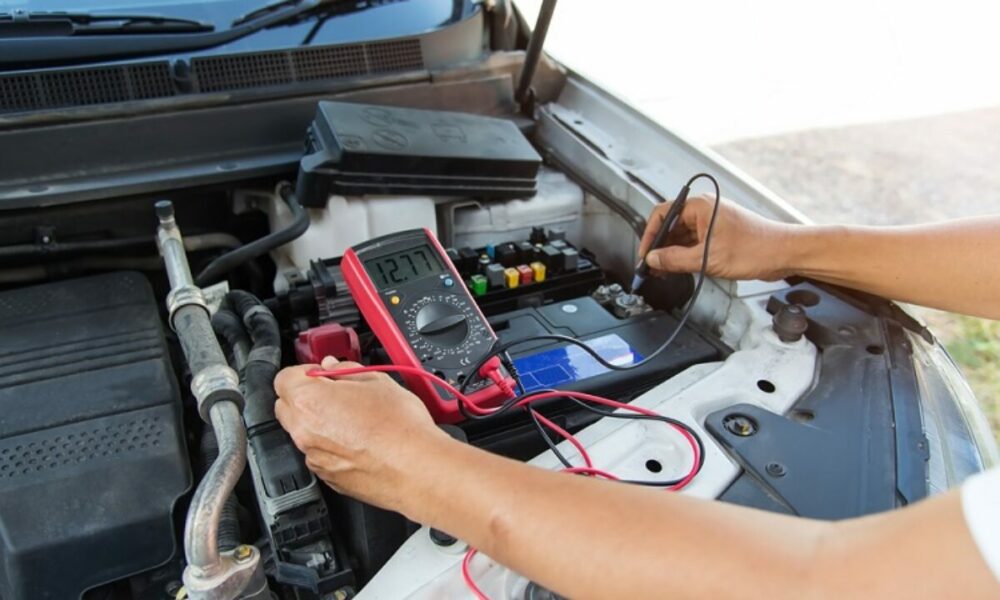Effective fleet fuel management is paramount for small to mid-sized businesses operating vehicle fleets. Fuel expenses often represent one of the largest and most volatile line items in a company’s budget, frequently accounting for approximately 30% of a fleet’s total operational costs. Without robust strategies for control and monitoring, these expenses can escalate rapidly, directly impacting profitability. Achieving efficiency in fuel purchases and overall fleet operations is not merely about reducing immediate costs; it is about establishing a sustainable framework for long-term savings and optimization. Businesses that proactively address fuel expenses gain a competitive edge, ensuring their vehicles and drivers contribute to overall business success and are held accountable for their usage.
Optimizing fuel spending requires a multi-faceted approach, integrating advanced tools and disciplined management practices. The goal is to gain granular insight into every transaction, understand usage patterns, and implement measures that prevent waste and fraud. This proactive stance transforms fuel management from a reactive chore into a strategic component of fleet solutions, critically enhancing driver accountability.
The Strategic Imperative of Fleet Fuel Cards for Accountability
The cornerstone of modern fuel expense management is the dedicated fleet fuel card. These specialized payment instruments provide businesses with unparalleled control and visibility over fuel purchases, differentiating them significantly from traditional credit cards or cash reimbursement. A fleet card is not just a method of payment; it is an integrated tool for fleet management that directly improves driver accountability. Companies using fleet cards can effectively mitigate fraud, enforce spending limits, and gain real-time reporting on all transactions.
For instance, 83% of fleet managers report that fuel cards help them identify and prevent fraudulent transactions. This is a critical security feature that personal credit cards simply cannot replicate. Each fleet fuel card can be assigned to a specific vehicle or driver, enabling precise expense tracking. This level of detail empowers businesses to identify anomalies, such as unusual purchase volumes or locations, allowing for swift intervention and direct feedback to drivers. Nearly half of all fleet card operators (49%) estimate that between 1% and 5% of their total fuel spend is fraudulent, highlighting a potential annual loss of over $500,000 for a 200-truck fleet spending approximately $10 million on fuel. The granular data captured through fleet cards is invaluable for accurate reimbursement processes and ensures drivers adhere to established policies, directly contributing to recapturing these lost funds. This can translate to recovering tens of thousands of dollars annually for even smaller fleets.
Fleet cards, such as those within the network, offer acceptance at a vast network of stations, including over 95% of U.S. locations where fuel is sold. This extensive network provides drivers with the convenience of fueling almost anywhere they operate, reducing diversions and improving efficiency. Beyond wide acceptance, many fleet card programs are designed to offer fuel rebates and discounts, directly impacting the bottom line. For example, some fleet card programs can offer savings of up to 15% on total fuel expenses for small to mid-sized fleets. For a single truck consuming 1,000 gallons of diesel per month, a modest discount of $0.30 per gallon translates to $300 in monthly savings, or $3,600 annually. Scaled to a fleet of five vehicles, this equates to $1,500 in monthly savings or $18,000 per year, demonstrating a significant direct improvement to profit margins.
Enhancing Control and Preventing Fraud to Boost Accountability
Effective control over fuel expenses is a top priority for fleet management, directly linking to enhanced driver accountability. Fleet cards integrate robust security features designed to prevent unauthorized purchases and reduce the risk of fraud. Key among these features are customizable spending limits and mandatory PIN verification. Businesses can set daily, weekly, or monthly limits on fuel purchases per card, restricting the gallon amount or total spend. This prevents excessive transactions and helps keep fuel costs within budget. Each driver is typically required to enter a unique PIN at the pump, adding an extra layer of security that prevents unauthorized use if a card is lost or stolen and ensures the correct driver is associated with the transaction.
Further control is provided through specific purchase controls. Businesses can restrict card use to fuel purchases only, preventing drivers from using the card for non-fuel items like convenience store purchases or maintenance outside of approved services. This level of customization ensures that every transaction aligns with company policy. For example, a trucking company might restrict diesel purchases to truck stops only, while an HVAC service company might allow gas purchases at any station within a specific geographical range. These controls are managed through an online account or app, offering businesses the ability to adjust settings in real-time, providing unparalleled flexibility and control over fleet expenses and directly informing driver behavior. Approximately 58% of fleet operators report using spending limits and purchase controls as a primary fraud prevention tactic, underlining their effectiveness and potentially cutting unauthorized spending by up to 25%.
Unlocking Data and Analytics for Driver Performance Insights
The true value of a comprehensive fleet fuel card program lies in the data and reporting capabilities it provides, which are crucial for establishing driver accountability. Fleet cards offer powerful tools for expense tracking and analytics, transforming raw transaction data into actionable insights. Every purchase is recorded, providing detailed information on fuel type, gallon amount, location, date, and time of transaction. This granular information is then compiled into comprehensive reports accessible through a secure online platform or mobile app.
These reports enable fleet managers to identify trends, pinpoint inefficiencies, and make data-driven decisions regarding driver performance. For example, reporting can reveal patterns of high fuel usage for specific vehicles or drivers, prompting investigations into driving behaviors or vehicle maintenance needs. Analytics can highlight the most cost-effective locations for fuel purchases within a network, guiding drivers to optimal stations and maximizing fuel discounts. This level of insight is crucial for optimization. Companies can also integrate fuel card data with existing accounting software, simplifying the reconciliation process and ensuring accurate financial reporting. This integration streamlines administrative tasks, which can reduce manual work by up to 80% for some fleets and eliminate the need for drivers to retain receipts, saving valuable time and minimizing errors. A typical fleet can save an average of $20-$30 per vehicle per month in administrative costs alone by automating expense reporting. The reports also provide the necessary information for straightforward VAT reclaim, a significant benefit that can add up to substantial savings for businesses.
The Role of GPS and Telematics in Validating Accountability
Beyond fuel cards themselves, the integration of GPS & telematics tracking further elevates fleet management efficiency and, crucially, reinforces driver accountability. While distinct, these technologies complement fuel cards by providing a holistic view of vehicle performance and driver behavior. Telematics systems collect a wide range of data, including vehicle location, speed, idling time, harsh braking, and acceleration. When combined with fuel transaction data from fleet cards, businesses gain deeper insights into how fuel is being consumed, enabling precise validation of driver activities.
For example, GPS tracking can confirm if a driver’s fuel purchase location aligns with their route or assigned geographical area. It can also reveal excessive idling, a common cause of wasted fuel. The U.S. Department of Energy estimates that a truck burns approximately one gallon of diesel per hour of idling. For fleets, excessive idling can cost between $6,000 and $7,000 per truck annually, potentially exceeding $600,000 per year for a fleet of 100 trucks (assuming a diesel cost of $4.50 per gallon). By identifying such behaviors through telematics, fleet managers can implement training programs or adjust driver schedules to improve efficiency and reduce fuel costs, directly fostering driver awareness and accountability. Companies that adopt these solutions typically reduce total miles driven by 5% to 10% through optimized routes, leading to an average fuel efficiency improvement of 10-15%. This integration allows for powerful analytics, cross-referencing fuel usage with actual vehicle movements. The synergy between fleet fuel cards and telematics solutions provides an unparalleled level of control and insight into fleet operations, ensuring fuel spend is directly tied to productive usage and minimizing risk.
Driving Fleet Optimization and Sustaining Driver Accountability
The comprehensive fleet solutions offered to businesses, often centered around a robust fleet card program, are designed to drive continuous optimization and deliver long-term savings, fundamentally by strengthening driver accountability. The granular data from transactions, combined with the strategic control features, enables businesses to make informed decisions that extend beyond just fuel purchases. This includes identifying opportunities for route optimization, improving driver efficiency through targeted training, and making data-driven decisions about vehicle maintenance schedules.
By analyzing fuel usage reports and cross-referencing with maintenance records, businesses can identify vehicles that are becoming less fuel-efficient, signaling the need for service or replacement. This proactive approach to maintenance helps prevent costly breakdowns and ensures vehicles operate at peak fuel economy. Furthermore, the consistent discounts and rebates offered through many fleet card programs provide a predictable source of savings that directly impacts the company’s bottom line. The global fuel card market is projected to grow from $27.4 billion in 2023 to $45.1 billion by 2030, at a compound annual growth rate (CAGR) of 7.37%, underscoring the increasing recognition of the value these solutions provide. These financial benefits, combined with the administrative efficiency gained through streamlined reporting and expense tracking, demonstrate the profound value a robust fleet fuel card program offers to any small business or mid-sized enterprise managing vehicles. Businesses using comprehensive fleet management systems, including fuel cards, report an average reduction in operational costs by 15-20% and an increase in driver productivity by up to 25%. This direct link between effective tools and driver accountability translates into measurable improvements in fleet performance and profitability.
Investing in a well-managed fleet card program is more than just selecting a payment method; it is adopting a powerful suite of fleet management tools designed to enhance control, drive savings, and streamline operations through improved driver accountability. By providing comprehensive expense tracking, robust security features, and extensive network acceptance, these cards empower businesses to transform their approach to fuel management. Taking the strategic step to optimize fleet fuel expenses and enhance operational efficiency can significantly benefit a business’s needs today.









